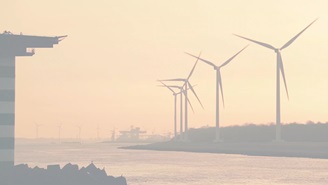Brazil: Deforestation in the Global Context - Part 2
In our previous blog post, we detailed the impact that the new Brazilian government’s policies have had on deforestation and could have on Brazil’s Indigenous Peoples. In this second article, we will explore how material recent developments in Brazil could be for the companies, communities and financial institutions involved. We will also take a closer look at Brazilian meat processing company JBS SA (JBS) and the consequences it may face due to international concern over deforestation.
Emerging market equities, ESG risk and sector tilts
The International Monetary Fund’s (IMF’s) recent downward revision to its projections of near-term global expansion reflects growing concerns about brewing market tensions. Central issues affecting capital markets include trade disputes between the US and China, Brexit and subdued investment and demand for consumer durables. According to the IMF’s latest outlook, global real GDP will grow 3.2% in 2019 and 3.5% in 2020 – a downgrade of 10 basis points (bps) for each year compared to the IMF’s previous outlook last April.[i]
The fairy-tale of Faroese fish farming
Aquaculture is the fastest growing food production sector in the past 20 years. It will become vital in meeting the rapidly increasing demand for seafood, and is expected to provide 50 per cent of total seafood consumed in the coming years.[i] Contributing to an increased protein supply and global food security, aquaculture also carries many risks. These risks include the potential spread of diseases and parasites, use of antibiotics and pesticides, and the escape of fish from fish farms which can jeopardize wild populations.
China’s Millennials and ESG
A country’s demographics has a strong influence on long-term social trends, including the development of ESG issues. With millennials becoming the dominant cohort among the workforce and consumers, we are witnessing the social transformations that come with a new generation. Although occurring globally, these transformations are particularly dramatic in China, due to the contrasting social environments experienced by China’s millennials and their parents.
Shareholder Rights Directive II gets transposed into local legislation - a look at say on pay
The newly updated European Shareholder Rights Directive (“SRD II”) (2017/828/EU) aims to promote long-term shareholder engagement at companies listed in EU-regulated markets. These changes were prompted by an almost decade-long conversation that arose in the wake of the 2008 global financial crisis. Since then, many market actors have flagged shareholder short-termism as a key contributor to the crisis, with long-term engagement conversely seen as a bulwark against similar failures in the future.
Brazil: Deforestation in the Global Context
On January 1, 2019, Jair Bolsonaro began his tenure as the president of Brazil. On his first day in office, he signed several decrees aimed at increasing power for the Ministry of Agriculture, at the expense of the Ministry of Environment. According to NGOs, this indicates a shift in government priorities away from environmental stewardship and protection of Indigenous rights towards bolstering the agricultural industry’s interests.
The business case against letting the well run dry
Do you believe climate change is a problem needing urgent attention? Have extreme weather events got you thinking about the personal or professional risks you face? Are you interested in how the global population will be fed in the future? Concerned about the mass migration of people in search for a better life? Worried about the outlook of energy production? If you answered yes to any of these questions, then you may also want to consider the vital element connecting all of the above: water.
Navigating Developments in the Sustainable Finance Market
On June 18th, in the heart of London’s financial district, Sustainalytics hosted its inaugural breakfast symposium, Navigating Developments in the Sustainable Finance Market. It was a full house, with over 60 engaged attendees, including Sustainalytics clients, prospects and partner financial institutions. The expert panel focused on developments and trends in the European and global sustainable finance space. Sustainalytics’ own Trisha Taneja (Sustainable Finance Solutions Product Manager) was joined by David Zahn, Head of European Fixed Income at Franklin Templeton Investments, and Heike Reichelt, Head of Investor Relations and New Products at the World Bank. Kevin Ranney (Director, Sustainable Finance Solutions) moderated the panel.
Sustainable Development Goals – Green Financing as a Bridge to the SDGs
The purpose of green financing, as stated by the UN Environment Programme, is to increase the level of financial flows (from banking, micro-credit, insurance and investment) from the public, private and not-for-profit sectors to sustainable development priorities. The aim is to align financial systems, working with countries, financial regulators and financial sectors, to direct capital allocation to sustainable development that will shape the production and consumption patterns of tomorrow. Financial mechanisms such as Green Bonds help this alignment as they promote public-private partnerships for sustainable development.
The Role of Technology Companies in Technology Addiction
The term ‘technology addiction’ describes frequent and compulsive internet, smartphone, gaming and social media use. This article focuses on the role played by technology companies and their response to compulsive use of their products and services.
Implications of the use of rare-earth elements in the wind energy market
Investors who are bullish on renewable energy are often drawn to the wind energy market. Alongside solar, wind energy has been rapidly adopted worldwide and continues to receive significant investments compared to other renewables.[i]
Mexican companies remain dedicated as government backtracks on climate commitments
Since taking office in December 2018, Mexico’s president Andres Manuel Lopez-Obrador, often referred to as AMLO, has not inspired much hope among investors in the country’s energy sector. The first six months of his presidency has confirmed investor concerns that the privatizing of the energy industry would be rolled back under AMLO, who has made energy sovereignty a cornerstone of his administration’s agenda. The contracts issued under the 2013 energy reforms have been placed under review and the energy auctions for oil, natural gas and renewables projects that were scheduled for 2018 were cancelled. The energy auctions scheme was introduced in 2015 as a key measure to achieve Mexico’s energy reduction commitments of 30 per cent and 35 per cent by 2021 and 2024, respectively.
High and Dry Down Under: Water Risk in Australia
In June, Sydney introduced water restrictions[i] amid an ongoing two-year drought in New South Wales. Authorities stated that the city was experiencing some of the lowest inflows into its catchment dams since the 1940s. At the end of the month, the City of Sydney also officially declared a climate emergency[ii], joining over 600 other local governments around the world.
ESG Ratings: A Rebuttal of Prevailing Criticisms
“No offence, but…”. This has become a common introduction to questions directed at environment, social and governance (ESG) rating providers and reflects a body of criticism centered on the premise that ESG research and ratings are fundamentally flawed.
Controversial Weapons: Regulatory Landscape and Best Practices
Since the beginning of modern warfare in the 20th century, we have witnessed the development of weapon types that have a severe, disproportionate and indiscriminate impact on civilians, even years after a conflict has ended. Over the past decades, several protest movements have attempted to halt and ban the production of specific, controversial weapon types, and many countries have adopted international conventions to this effect. More recently, some financial institutions have begun to restrict or exclude financing of companies with involvement in certain weapons. This article explores what investors can do, beyond existing legal frameworks, with respect to controversial weapons.
Demystifying Sustainability Linked Loans: Leverage your ESG Rating
While investors are increasingly focused on how their investment decisions impact the environment and key stakeholders, forward-looking lenders also have sustainability at the core of their allocation strategies. As a result, the demand for sustainable finance products has increased in recent years.
Point of Sale Financing: Inclusive for all?
What is Point of Sale Financing? Point of sale financing (PSF) is a relatively new financial product that has garnered significant interest from consumers, retailers and financial institutions. It provides financing to markets that were previously underserviced by conventional financial products but can also be a gateway to impulsive spending and poor financial choices if not managed properly. This article provides a brief overview of PSF, the pros and cons for consumers, a comparison of PSF with conventional lending vehicles and a sector review looking at policies addressing financial inclusion.
Can Italian Banks Avoid Another Financial Crisis?
Italy is the birthplace of the accounting and credit systems and is home to some of the world’s oldest banks. Despite this legacy, poor lending decisions in the past decade and a high number of non-performing loans (NPLs) is putting the Italian banking sector at risk. This article will explore the connection between responsible product marketing practices and the financial stability of Italian banks by analyzing Sustainalytics’ ESG data.
Your Company's ESG Ratings: Understanding Sustainalytics Research Process
In September 2018, Sustainalytics announced the launch of its next generation ESG Risk Ratings, which evaluate the degree to which a company's enterprise value is exposed to material ESG issues. Specifically, they measure a company's exposure to industry-specific material ESG risks, and how well that company is managing those risks. Combining the concepts of management and exposure we arrive at an absolute assessment of ESG risk that is comparable across subindustries, sectors, companies and regions.


















